You might be one of those in a dilemma whether to can or freeze-dry your foods.
Because when it comes to canning and freeze-drying foods, both have their own advantages and disadvantages. Let’s take a closer look at each method to help you decide which is best for you.
Roger Williams once said, “Health requires healthy food,” and we couldn’t agree more. In this era of unhealthy processed food, focusing on eating healthy and nutritious food has become even more critical. So, ensure that you’re using the right method to store your food that wouldn’t only last longer but also maintain its nutritional value.
What are Canning and Freeze Drying?
We all are familiar with the term canning, as it is one of the oldest and most popular methods of preserving food. It involves sealing food in airtight containers and then heating them to a high temperature so that the microorganisms present in the food get destroyed.
This method is quite effective in preserving food for a long time, but it also has some drawbacks. Canning is widely used in the commercial food industry but is unsuitable for home (for most people) use as it requires special equipment and training (or experience).
On the other hand, Freeze Dry is a relatively new method of preserving food. In this method, the water present in the food is removed by freezing it and then subjecting it to a vacuum. This process is also known as lyophilization.
However, this method is relatively expensive and unsuitable for large-scale food preservation. But, it’s the best method to preserve food for home use as it does not require something special.
Related: What to Eat When the Power Goes Out
Canning vs. Freeze Dry: The Pros and Cons
I am sure that by now, you must be wondering which method is better for preserving food: Canning or Freeze Dry. Well, both methods have their own pros and cons. Let’s take a look at them:
Canning
Pros:
- Canning is best to preserve food for a long time.
- It is perfectly suited for preserving large quantities of food.
- For commercial use, this is the most recommended method. However, it can be done at home with the help of a pressure cooker.
- Canning is the most effective way while preparing your pantry for SHTF.
- The process takes less time as compared to freeze drying.
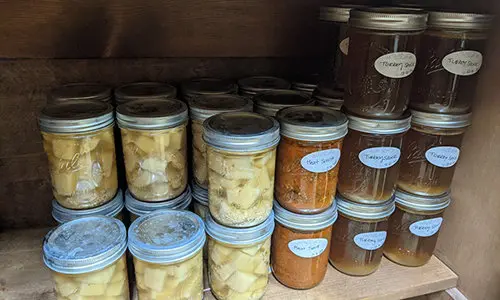
Cons:
- Canning can alter a bit the taste and texture of food.
- This process may require special equipment.
- You can only store food that is easily put into jars or containers.
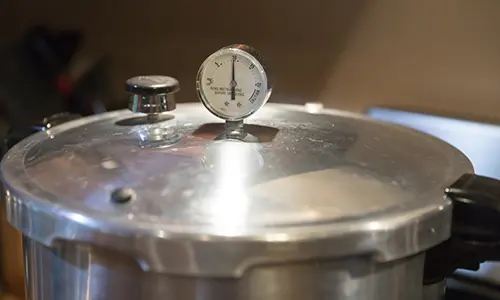
Freeze Dry
Pros:
- This is an optimal method to store food for home use.
- Food retains its original flavor and texture.
- It is perfect for preserving delicate foods like fruits and vegetables.
- You can freeze-dry any food that contains water. So, you can preserve more things this way.
- It is simple and doesn’t require anything special except a freezer.
Related: 8 Dangerous Mistakes To Avoid When Storing Your Food
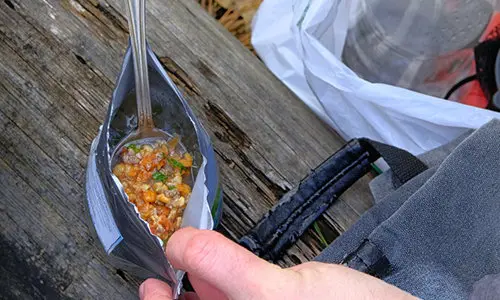
Cons:
- This method can be quite expensive.
- It is time-consuming as it can take more hours to freeze and dry the food completely.
- Freeze dry foods need to be recooked before eating.
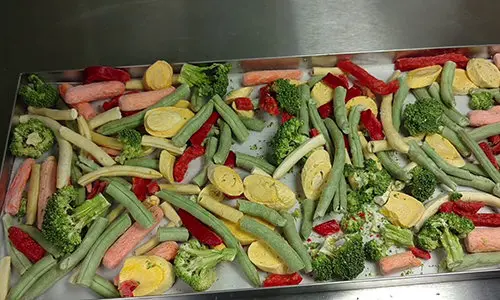
The Costs of Canning and Freeze Dry
The costs of these methods depend on your usage.
Well, the cost of freeze-drying for home use ranges from $500 to $3000. While for commercial use, freeze dry can cost as much as $10,000, depending on your business needs.
On the other hand, the cost of canning equipment for home use ranges from $100 to $200. However, the canning equipment is a little costly. Also, you have to buy cans every time you want to store food.
So, on the long run, canning can cost a bit more than freeze drying if you’re into home use. However, for commercial use, the canning cost is quite low compared to freeze drying.
For me, freeze drying is the best option as it doesn’t require anything special and is perfect for my home use. What do you think? If you use canning more than freeze drying food, please let us know in the comments section what kind of foods you are canning.
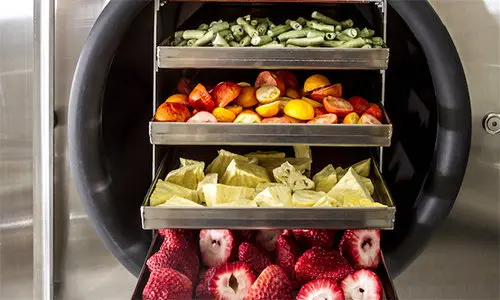
How to Choose the Right Preservation Method for You
The preservation method you choose depends on your needs. It also depends on what kind of food you want to preserve, for how long, and the quantity.
For instance, if you want to preserve a large quantity of food for a long time, then canning could be the best option. But freeze drying would be best if you want to maintain delicate foods like fruits and vegetables.
The purpose of preserving food also matters. For example, if you want to keep food for an outdoor adventure, then canning would be the right way to go — it is simple and doesn’t require to be reconstituted.
But if you want to preserve food for home use, you must use freeze drying as it preserves the original flavor and texture of food.
At the end, it all depends on you and your requirements. Therefore, you must choose the right preservation method accordingly.
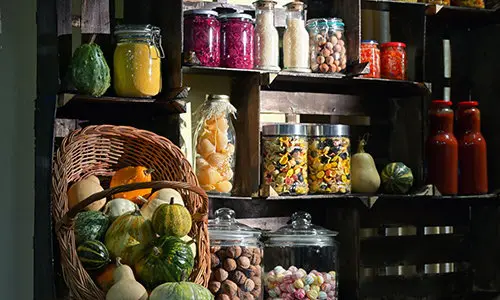
Key Takeaways
In my personal experience, both methods are potential ways of preserving food. But it all comes to personal preferences and needs. Canning is ideal for preserving food for longer shelf life, whereas freeze drying is more expensive but good for maintaining the original shape and taste of food.
Also canned foods are easy to store (in a root cellar or pantry), but freeze-dried foods need a freezer.
I hope this article will be helpful for you in choosing the best preservation method for you. Remember, before deciding upon anything, it is always better to do your own analysis. It helps to make clear and better decisions by better understanding your situation.
You may also like:
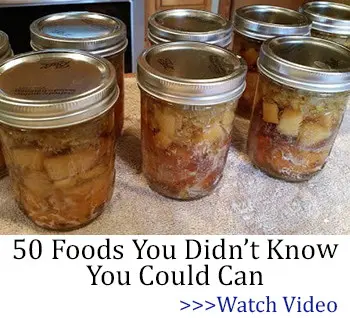 Making Machaca – Mexican Pemmican (Shelf Stable Meat)
Making Machaca – Mexican Pemmican (Shelf Stable Meat)
How To Store Food Without Electricity That Can Last Up To A Year (Video)
How To Dehydrate Milk For Long Term Storage
10 Recipes From “The Great Depression” To Survive The Next One

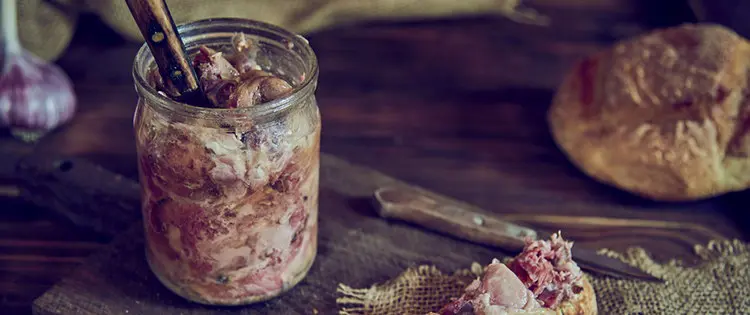








Can you give steps to freeze drying?
I have investigated buying a freeze dryer, it seems the pumps are problematic, there are frequent oil changes needed.
I believe the Mylar bags can be costly, and should we talk about the energy used to run a dryer for extended time?
It would be a no from me.
I made the jump to Freeze drying about 3 years ago and am happy and surprised about the stockpile I have…Pretty much what ever you want can be done and if completely dried has a shelf life of 25 years…for most of my processed food I store them in pint jars which ends up being about a one portion size…it does not require any special treatment once it is sealed in airtight containers…You can rehydrate with a cup of water or eat right out of the container in the dried form…The only drawback I have found is processing with really hot weather almost doubles time need to complete the process…The unit does not require more power to process than an extra fridge plugged in while it’s working
Freeze drying retains 97% of nutrients; canning destroys nutrients by heating to high temperatures. Freeze dried foods DO NOT need to be recooked. Most need to be rehydrated depending on their use. Meats and eggs can be freeze dried. The only things that cannot be freeze dried are oily foods. I can eat yogurt while driving, for instance, without any mess. As for oil changes for pumps, they have oilless pumps.
freeze dried foods do NOT need to be stored in a freezer. you should update this article to correct that.
I agree.
I have foods O have freeze dried several years ago.
I stored the under my bed until a short while ago.
Still retain the same color and freshness ess as when I freeze dried them
There are several errors in this article regarding freeze drying.
1. The shelf life of canned food (pressure canning with glass jars) is about 2years. Freeze dried foods, properly processed can last up to 25 years.
2. Food in canning jars require environmental control, particularly in winter so the don’t freeze and rupture. Freeze dried foods do not require any energy to store them.
3. The article states that you need a freezer to store “freeze dried foods” and this is completely false. That’s one of the many advantages of freeze dried processing.
While canning has some advantages in terms of the specific condition of the food, freeze drying allows for storage of meat and eggs without a need for energy expenditure for an extended period of time; i. e. Many years. This one advantage outweighs almost all of the other advantages of canning.
Another significant advantage of freeze drying is the change of weight in the freeze dried state and the significantly lower weight of the container, i.e. Mylar vs. glass jar(which is vulnerable to breakage. ) along with the reduced need for space to store it.
A person can carry a much greater food supply with freeze dried foods vs. canned food.
These are but a few of the primary reasons freeze drying is superior to canning.
You are absolutely correct on all points and you barely scratched the surface of why it is utterly ridiculous to compare canning to freeze drying as freeze drying is so superior to canning. It on another level.
I’m also so surprised at how many errors regarding freeze driving are in the article.
I believe that you are incorrect by stating that freeze dried foods must be stored in a freezer.
They do NOT.
Please contact the freeze dryer company to verify this and correct the article if needed.
Thank you.
Freeze dried foods indeed, don’t necessary “need” to be stored in the freezer, however it is recommended that you do so (or you can just use one), for a longer shelf life. So the CAPS LOCK used by those two comments above is unnecessary.
I have a big freezer in my cellar/warehouse, and I keep some of the freeze dried foods there also. Nothing wrong with that.
Actually putting freeze dried food in a freezer is not recommended as it can add moisture back into the food. The shelf life for most FD food is 25 years if kept in temps below 80,
Freeze drying seems to require Mylar bags which are adding to the trash heaps – you can’t reuse them and they NEVER decompose. How is this a good solution?